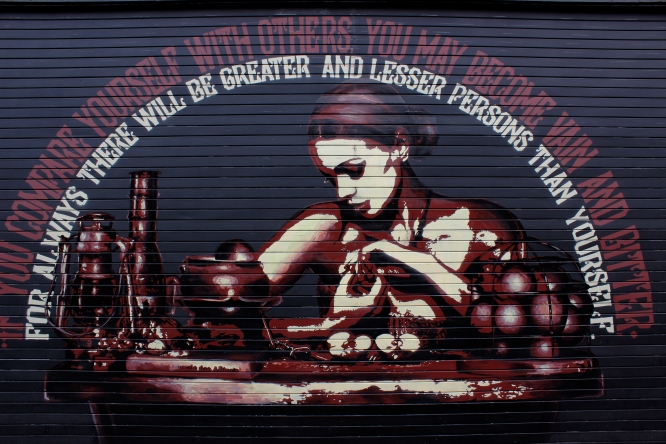 Perhaps you can relate to this experience. You go along to your writers’ group with a piece of which you’re particularly proud. Something you poured your heart into, and then polished until it shone. You read it out nervously, and after you finish speaking, there’s an excruciating tumbleweed moment, during which you genuinely think your heart might stop.
Perhaps you can relate to this experience. You go along to your writers’ group with a piece of which you’re particularly proud. Something you poured your heart into, and then polished until it shone. You read it out nervously, and after you finish speaking, there’s an excruciating tumbleweed moment, during which you genuinely think your heart might stop.
Finally someone says, in a thoughtful yet non-committal manner, “Hmmmm.”
At last another voice speaks up. “Well, I thought it was quite well-written.”
And there it is. The word we dread so much. Quite.
Why is it so terrible to be damned with faint praise? Isn’t it preferable to a savaging? Shouldn’t we be grateful anyone complimented us at all?
When our work elicits only tepid reactions, it feels like our poetry or prose has failed to inspire a single emotion. That despite having attained a degree of literary competence, we’re still not “there” yet.
For those of us who’ve been bleeding at our typewriters for a very long time, not being “there” can be especially disheartening to hear. Because the older we get, the more possible it becomes that “quite well-written” is our final destination on this ride.
In the throes of a first draft, we may veer wildly between delighting in our brilliance and castigating ourselves for being the most execrable writer ever to desecrate a blank page. But deep down, I think we recognise these as passing moods. That neither extreme reflects reality.
The most insidious of my critical voices isn’t the one that loudly berates me for being a dreadful writer. It’s the one that steals into my room late at night, settles on my shoulder and whispers in my ear, ‘actually, you’re not bad. But I’m afraid that’s as far it goes.’
I was talking with some friends last week about our fears of being mediocre. We witness every day how mediocrity is rife in our political and entertainment culture, and yet few artists I know would be happy to be assigned the label of “average” in their field.
And it made me wonder: why are we so ashamed of being something which, by definition, most people are? What makes us believe we have the right to be special? Why do I expect, or even want to be anything more than a half-decent writer with a handful of workable novel ideas?
Is it a sense of entitlement or inadequacy (or both) that stems from having had our worth graded ever since we were children? A necessity of capitalism: that competition for resources requires us to measure our progress constantly against that of our peers and strive for superiority?
I prefer to imagine it’s more because we read Keats or Kerouac, and we were so moved and so blown away by their genius that we committed our souls to aspiring to create at that level. Even though it condemned us to live with the torment of knowing we’d probably never produce even the palest of imitations.
During this discussion, someone pointed out that one person’s idea of average is another’s excellence, and vice-versa. For every so-called masterpiece, a thousand critics will shrug their shoulders. Which isn’t to imply that craft and technique and quality don’t matter. But it does mean that the “faint praise” we’re getting may not represent the whole picture.
Because it is as much about others as it is about us. We may not have found an audience we connect with yet. Even if that ends up being just a couple of readers, if our writing brings them joy or recognition or catharsis, if it distracts them from their troubles by luring them into an exciting imaginary world, then wasn’t it worth enduring all those disappointments?
I think so.
Two of the most valuable lessons I’ve learned in life are that we can’t control what other people think of us, and that we can’t truly be anything other than what we are. Difficult as these ideas may be to accept, they also help to free us from the curse of comparison.
I’d rather be a writer who risks putting her work out there for people to appreciate or otherwise, than a perfectionist who remains in perpetual hiding for fear of not meeting her self-imposed expectations.
And none of us really know what’s going to happen anyway after we hit the publish button.
